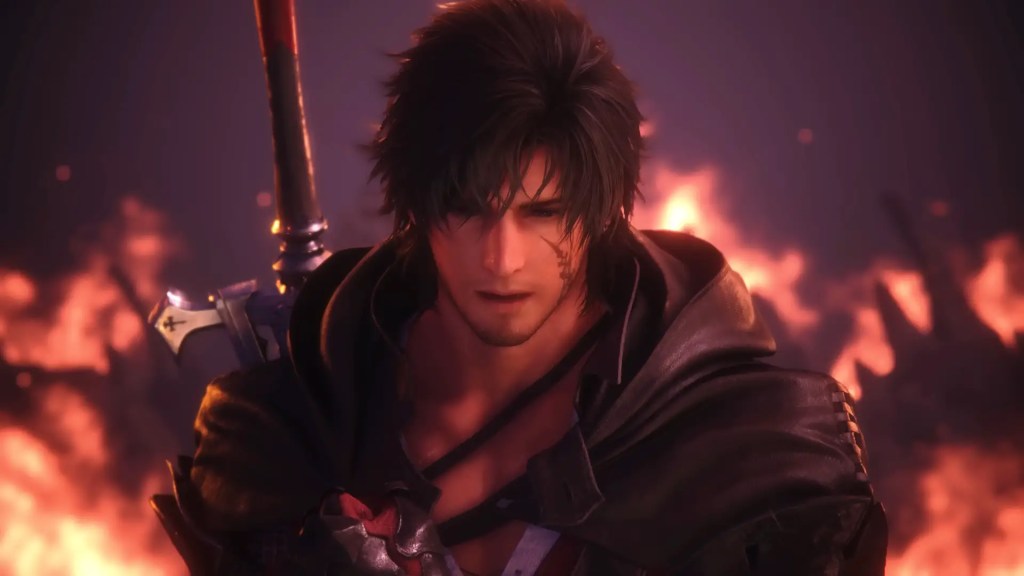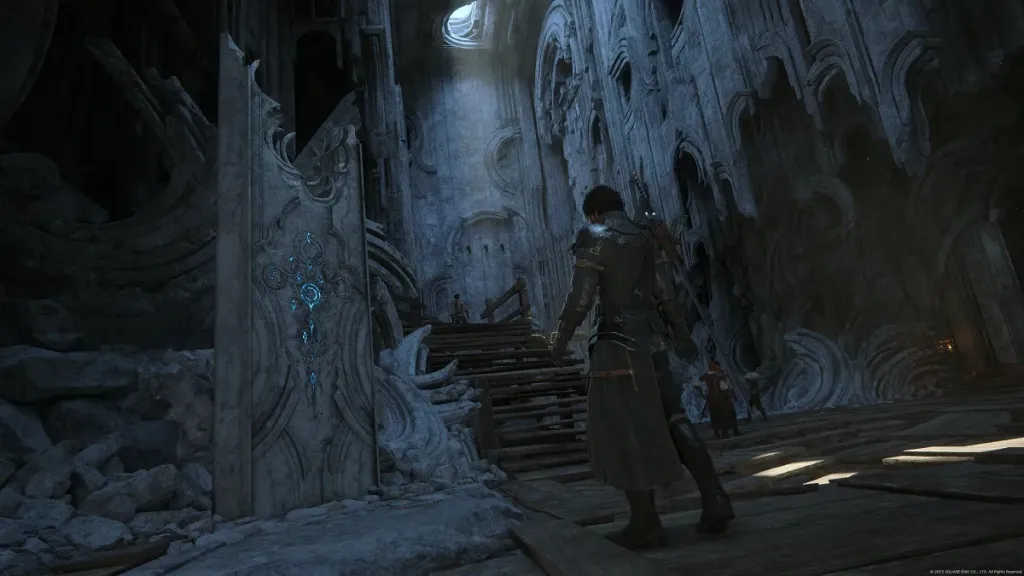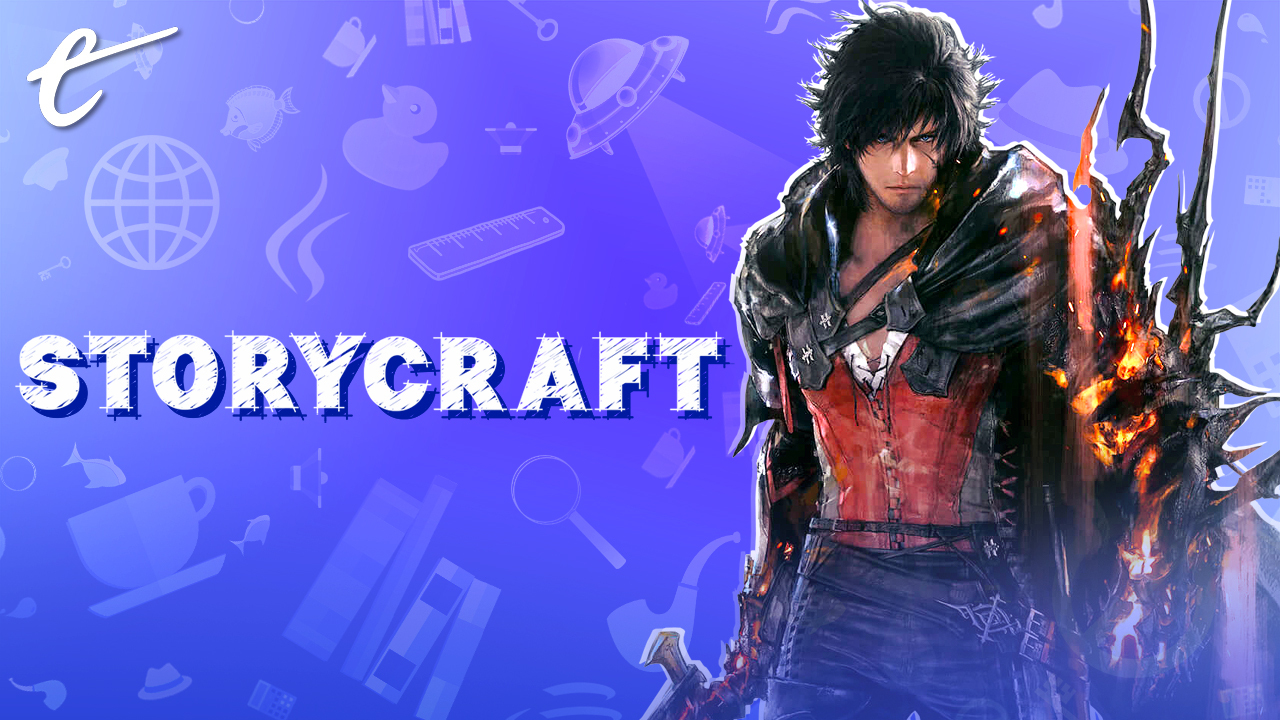This article contains spoilers for Game of Thrones and Final Fantasy XVI.
In an interview with Eurogamer, Final Fantasy XVI producer Naoki Yoshida was asked about the game’s obvious Western fantasy influences. He offered the following: “(W)hen we saw how Game of Thrones, and before that the Song of Ice and Fire series, has really resonated with players, we knew that this was something that we wanted to do as well.”
Basing your high-fantasy video game off one of the most successful IPs of all time isn’t a bad idea. Still, anytime I hear about how a paradigm-changing piece of art has “influenced” a creator, I wonder what specific part of that thing they are taking for themselves.
Remember when Batman Begins came out and kicked off a whole generation of “dark” superhero movies? Forget the incredible cinematography, the verisimilitude of the world, the A-list actors, and the exploration of the toll being Batman has on the psyche of the people Bruce Wayne loves and the city of Gotham as a whole. The only thing many superhero movies, and movies in general, took from Batman Begins was this vague mandate to make everything “dark.” What does “dark” mean? What makes a movie “dark”? I don’t know, and I don’t think anyone else does, either. It’s an executive note that has no creative juice behind it.
In the above quote, Yoshida doesn’t say what about Game of Thrones resonated with players, only that something did. After playing Final Fantasy XVI, I wonder if his team understands Game of Thrones at all. I know one thing for sure: Whatever the narrative team’s intent, Final Fantasy XVI does not possess the courage or the patience to dig deep into what it purports to be inspired by.

In short, Final Fantasy XVI’s story is as shallow as a tide pool. This is broad blockbuster storytelling, where characters speak (or scream) instead of feeling. The action is loud, flashy, and without consequence. The characters are narrative cudgels who exist only to bash you over the head with the story’s themes. It’s pure “tell, don’t show”: We know what characters want because they constantly remind us, but why they want these things, and the toll the pursuit takes on them, is left to us to create. It’s like watching a YouTube video of a roller coaster.
Let’s compare two big moments in Game of Thrones and Final Fantasy XVI: the destruction of the Sept of Baelor in GoT and the death of Cid in FFXVI.
At the end of season 6 of Game of Thrones, Cersei is censured, arrested, and shamed. All the horrible things she’s done have finally caught up to her. She is irrevocably changed. Even if you watch the show on mute, you can tell something is different: Her signature golden hair has been roughly cut short, and her bright red Lannister clothes have been replaced with severe black and silver dresses that look more like armor than gowns. We know she’ll get back at the people who wronged her, but not how. That tension of knowing the why but not the how pulls us along like a raging river.
The threat of wildfire had simmered through the show since the end of season 2 when Tyrion used it to destroy an entire fleet. The genius of Game of Thrones was that watching it felt like playing the Game yourself: You know vaguely who has what in their arsenal, but not when they’ll deploy it.
In season 6, two of Cersei’s biggest enemies are in the same place at the same time: Queen Margaery, Cersei’s biggest obstacle to taking the throne, and the High Sparrow, who, as the realm’s religious leader, is the only person who is arguably more powerful than she is. We know something is going to happen. When it does, it’s spectacular: Cersei’s entire wildfire stockpile goes off underneath the Sept of Baelor, incinerating many of her enemies and leveling the building. It’s not just a political move; both of these characters have deliberately hurt Cersei, and people who do that don’t tend to survive.

The scene is scored with a version of the show’s theme that is somehow even heavier on the cello, underlining that a major moment is about to happen. There’s no doubt that these characters are about to die. We see the wildfire, we hear Margaery figure out Cersei’s plot, and we feel the inevitability of the action, that pit-in-your-stomach feeling the show was so good at. Cuts, music, writing, and acting are all deployed to build tension that explodes along with the Sept in the biggest boom of the series.
It’s also a resolution of a personal vendetta. The Sept of Baelor represented Cersei’s public shame. By destroying it, she destroys that shame. That’s a lot of character payoff built into a single event. In the end, the how and the why are crystal clear.
(Damn, this show was good!)
The event would be effective on its own, but at its best, Game of Thrones was about consequences as much as action. The consequences of Cersei’s mass murder are immediate and devastating: King Tommen, Cersei’s only living child, knowing his wife has just been incinerated, throws himself out his bedroom window.
We know all these characters, their backstories, and their motivations. We know the tools they have at their disposal. Nothing is kept from us to build tension artificially. We know exactly what will happen and are powerless to stop it. Game of Thrones‘ best moments encapsulate the message that the ruling class will do whatever it wants to, and the masses (i.e., us) are caught in the middle.
Now to Final Fantasy XVI. At the end of Act One, Clive, Jill, and Cid infiltrate the Holy City of Sanbreque to destroy the city’s Mothercrystal. They reach the Mothercrystal and break it… somehow, leading to a cutscene of the whole thing disintegrating and random people in the city fleeing in terror. We never see any characters we know, like the Dame who runs the brothel in the next town over or the leader of Sanbreque, react to this event, and there seem to be no consequences or collateral damage.

The Mothercrystal was concealing a portal from which a monster of ambiguous origin tries to emerge. Cid shoots some lighting at it and is severely hurts in the process. Clive gets sucked into the portal, a big kaiju fight happens, and he reemerges. But, oh no! His really good friend Cid, who has used, lied, and manipulated him from the moment they met, is now mortally wounded. This makes Clive sad/angry.
There’s a melodramatic death scene filled with empty talk of fate and purpose. Then Cid lights a smoke, a thing that he does, and dies. Clive then screams at the ceiling, because God forbid we have one second of quiet. Then they’re attacked by the monster Clive had defeated in the portal. Or maybe it’s some other monster, or maybe a god? Is it the voice in Clive’s head? Cid seemed to know what it was, but we sure don’t, so the threat is totally inert.
It’s all how and no why.
But this is about halfway through the story, so the revelations keep coming! Clive and Jill are rescued from this new threat by Joshua, Clive’s brother, who was presumed dead at the end of the prologue but whom the game has teased was still alive about a dozen times. Joshua saves Clive and Jill by screaming nonsense about “who he is” and conjuring a massive wall of fire in a perfect metaphor for the game’s drama: It’s all flash, no consequence. Is the fire Joshua conjures hot? Does it burn you? Or does it just knock numbers off your health bar? It certainly doesn’t skeletonize you as the wildfire does in Game of Thrones. These aren’t people. They’re action figures.
Clive and his brother don’t even reunite. Clive and Jill pass out, punting this reunion a few more hours down the field.
Wait, there’s more unmotivated drama! We cut to the Hideaway, Cid’s super secret rebel base, being raided by villains. A minor bad guy, acting on behalf of a larger bad guy, had discovered the location of the Hideaway by just following the heroes back there and then told the other bad guys where to attack.

At least Final Fantasy XVI should finally be able to deploy the most blunt instrument in the Game of Thrones arsenal: killing off named characters. So long, Sassy Old Lady Merchant. Sayonara, Aloof Herbalist. Arrivederci, Mysterious Blacksmith. Except, no, nobody important dies. A lot of NPCs get sliced up, one guy gets his eye cut, and that minor bad guy is stabbed, but everyone seems to get away just fine, even when the massive Titan arrives to flatten the Hideaway. That should be cool! Except we cut away before we see it do anything.
Maybe we’ll learn of the consequences of this massive loss when we take control of Clive again?
Nope. Instead, we get a time jump. The game jumps ahead a laughable five years. Do you remember the person you were five years ago? How many moments have you had, how much growth have you undergone, and how much heartbreak, triumph, joy, sadness, anger, failure, and success have you had in the last half-decade? I bet it’s a lot! We see none of this. Clive and Jill appear to be pretty much the same. They haven’t even changed their goddamned outfits!
We are shown absolutely nothing of the consequences of our character’s actions. The five-year time jump completely deflates whatever the emotional impact Cid’s death or the destruction of the Hideaway may have had. We don’t see anyone mourn Cid (then, at least), and there seem to have been minimal consequences to the Sanbreque Mothercrystal’s destruction. The Resistance’s new Hideaway seems pretty rad, and all those memorable characters are still alive, ready to sell you slightly better swords and slightly better potions. Worse, Clive is still a miserable asshole complaining about his dangerous “power,” which we, the audience, are no closer to understanding.

Final Fantasy XVI has none of the patience of its supposed influence material. You can definitely make the argument that Game of Thrones wasn’t very emotionally mature either, but at least it understood that those indelible, culture-grabbing moments only grabbed the culture in the first place because there was space and time in-between the big battles and betrayals for breath and reflection. FFXVI does give its moments space, but that space is filled with Clive effortlessly kicking the shit out of monstrous plants or sidequests about people getting lost 100 meters away from the person looking for them.
It’s why people are still salty over the ending of Game of Thrones. The show’s internal consistency over alliances, motivations, and even geography was discarded in favor of big set-piece moments and end-of-episode twists, and even those were poorly handled. Daenerys Targaryen’s turn to evil didn’t come out of nowhere; it was very deliberately set up through the run of the show, but the actual moment she flips is terrible. All her scheming, planning, and benevolence fall apart when she realizes the people of King’s Landing aren’t stoked to have a conqueror flying over their city on a dragon, and she just sort of snaps. They don’t even give her a line! Emilia Clarke was pretty good at playing Dany, but asking an actor to communicate all that with just her face is borderline cruel.
Just like Diablo IV, Final Fantasy XVI uses the iconography and cultural connection we have with a piece of art that it has neither the patience nor the understanding to emulate properly. It’s not for lack of trying — it’s obvious a lot of money went into the game’s story — but when that story is as shallow, unmotivated, and ignorant of human behavior as this one, I’d rather it not have one at all.





